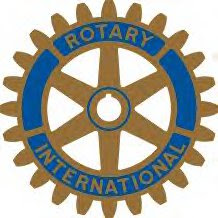 O
Oo
On Wednesday January 15, 2008 H.E. Joe Robert Pemagbi, (Front center) the Permanent Representative of Sierra Leone to the United Nations, met with Rotarians for an informal breakfast meeting to review a variety of democratic and economic issues facing Sierra Leone, and humanitarian projects Rotary is conducting in Africa.
Also included in the photo are (left) Sister Marie Adele of the the Fraternities -Notre Dame, AG - Thomas McConnon, Club Service Chairperson - Shelia Washington, GSE Liaison - Professor Eva Corredor, PDG Paul Caruso and Doctor
From 1999 until his current appointment, Ambassador Pemagbi was Chairman of the National Commission for Democracy and Human Rights in Sierra Leone, and a member of the Commission since 1994, where his duties included formulating and raising awareness about democracy, civic rights and responsibilities, and human rights. He received his master’s degree in linguistics from the University of Leeds (1976) and his bachelor’s degree in education from the University of Sierra Leone in 1972.
Sierra Leone became an independent nation from Britain on April 27, 1961. A military coup overthrew the civilian government in 1967, which was in turn replaced by civilian rule a year later. The country declared itself a republic on April 19, 1971.
The Sierra Leone Civil War began in 1991, initiated by the Revolutionary United Front (RUF). Tens of thousands died and more than 2 million people (well over one-third of the population) were displaced because of the 9-year conflict. Neighbouring countries became host to significant numbers of refugees attempting to escape the civil war. It was officially declared over on 18 January 2002.
Considered one of the world's poorest countries, Sierra Leone has been ranked last by The United Nations' Human Development Index (HDI) for 2007-08.
About two-thirds of the population engages in subsistence agriculture, which accounts for 52% of national income. The government is trying to increase food and cash crop production and upgrade small farmer skills. Also, the government works with several foreign donors to operate integrated rural development and agricultural projects.
According to the U.S. State Department, Sierra Leone is rich in minerals and has relied on the mining sector in general, and diamonds in particular, for its economic base. By the 1990s economic activity was declining and economic infrastructure had become seriously degraded. Over the next decade much of Sierra Leone’s formal economy was destroyed in the country’s civil war. Since the cessation of hostilities in January 2002, massive infusions of outside assistance have helped Sierra Leone begin to recover. Full recovery to pre-war economic levels will require hundreds of millions of additional dollars and many more years of serious effort by the Government of Sierra Leone and donor governments.









